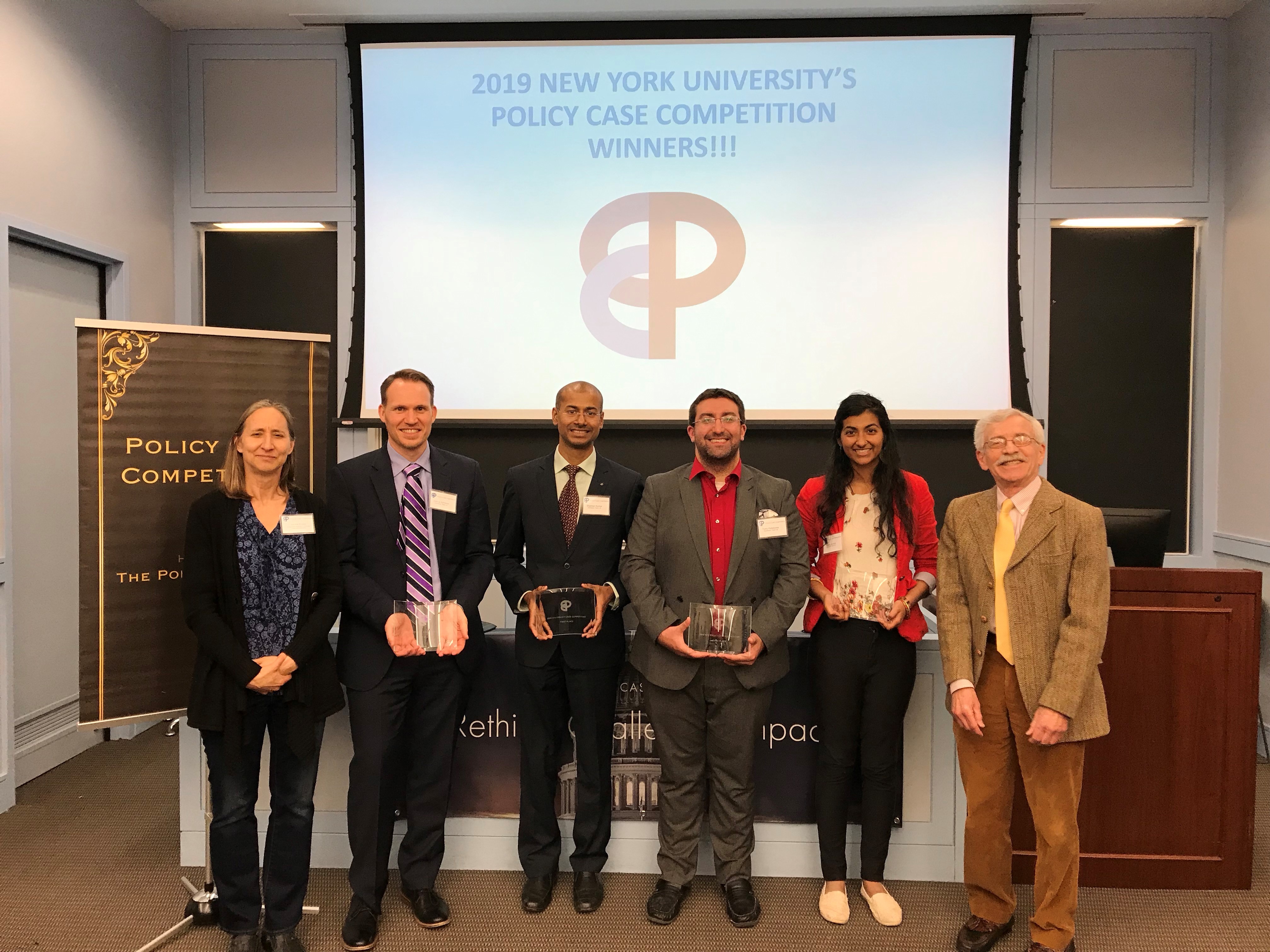With over 500 students comprising 139 teams, the annual New York University Policy Case Competition (NYUPCC) came to a close on April 28, 2019. After reaching the final round, UConn students Shankar Kumar ’19 (MBA), Tony Patelunas ’19 (MPP), ’20 (Ph.D.), Sneha Jayaraj ’19 (MPP) and Joshua Schreier ’19 (MPP) impressed the judges to become the 2019 champions. The team was awarded trophies, a $1000 prize and a celebratory dinner with esteemed judges in New York City.
Teams from top schools around the world, including Canada, China, Pakistan, India, France, Spain, and across the US competed to produce the most innovative and effective policy proposals. In round one in early April, teams submitted a memo on an assigned topic in domestic, international, tech, or science policy. In round two on April 27, twenty qualifying teams presented their proposals before a panel of expert judges at NYU. The top five teams, with students from NYU, MIT, UPenn, Emory, the University of Washington and UConn, presented again in the final round on April 28. Assigned farm subsidies, UConn’s winning presentation included proposals to cut federal crop insurance subsidies and create a targeted tax credit for small farmers.
Jacqueline Klopp, a Professor at Columbia University’s Earth Institute and one of NYUPCC’s final round judges stated that one of the reasons the UConn team won was its “holistic consideration of the interconnected effects of farm policies on human health, community, the environment, and the economy.” Another judge, Lawrence White, the Robert Kavesh Professor of Economics at NYU Stern School of Business, complimented UConn students’ “effective use of slides and clear communication skills.” While the competition was close, judges said that the UConn team came out on top because of its nuanced considerations of political feasibility, effective and smooth teamwork, and careful quantification of costs and benefits.
“Basically we used the skills like memo writing, cost-benefit analysis, and public speaking we learned in our classes to win,” Schreier said, “I’m so proud of what we accomplished together as a team.”
The team focused its attention on full-time farmers with annual gross sales of less than $150,000 because this group has a median income less than that for US households overall and faces high farm land prices and other challenges. At the same time, small farmers provide many positive externalities not compensated by the market. “This proposal would decrease inequity in a system where government subsidies are currently highly skewed toward the largest and wealthiest farms. By providing support for small farmers who really need it, it makes our food system stronger,” Patelunas explained.
An MBA student, Kumar joined the UConn team because of his interest in public policy and sustainability: “When you design public policies, all stakeholders need to be taken into account and that includes the well-being of the earth and everyone who depends on it.”
The team donated the $1000 prize money to the Department of Public Policy’s fund for students to participate in future professional development activities, conferences, and competitions like NYUPCC.



